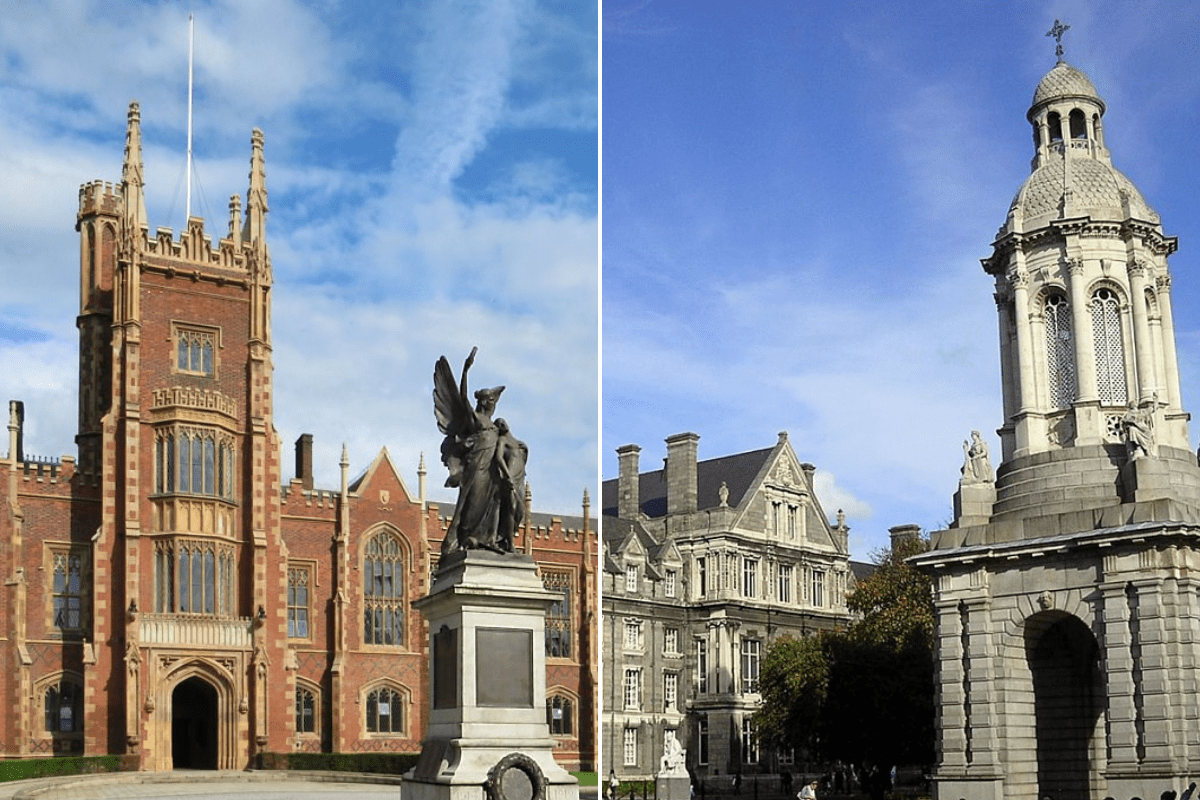An Economic and Social Research Institute (ESRI) report has found that a low number of students are crossing the Irish border for third level education.
The organisation considered a variety of CAO and UCAS data from 2010-21 and consulted 14 key stakeholders working in the fields of career guidance, admissions, and higher education policy.
The report found significant barriers obstructing students, particularly those living in Northern Ireland, from studying across the border and made recommendations on how levels of cross border education can be increased.
Statistics on cross border education:
In the 2020/21 academic year just 1,170 students from Ireland went to study in Northern Ireland representing just 2.4% of Northern Ireland’s student population. During the same academic year, just 1,255 students from Northern Ireland studied across the border. This represents 0.6% of Ireland’s student population.
It should also be considered that during the 2020/21 academic year over 13,000 students from Northern Ireland left to study in other parts of the UK. This indicates that Northern Irish students are not opposed to studying outside of Northern Ireland.
While it is certainly possible that many students from Northern Ireland simply aren’t interested in studying in Ireland, it seems unlikely that just 0.6% of Ireland’s student population is made up of students from Northern Ireland because of this.
Instead, as the ESRI’s report suggests, many students from Northern Ireland don’t study in Irish universities as a result of a system which puts these students at a disadvantage.
What are these barriers?
Throughout the report it is made clear that one key factor preventing Northern Irish students from studying in Ireland is the conversion of A-level grades to CAO points.
While all students in Ireland are graded out of 6 subjects, the majority of students from Northern Ireland take three A-levels. This is problematic in that in order for a Northern Irish student to achieve the maximum Irish grade of 625 points, they are required to sit four A-level subjects.
In the years 2019 to 2022 between 3 and 3.6 percent of students in Northern Ireland sat four A levels. This means that over 96% of students from Northern Ireland immediately had their grade converted grade capped at 555 CAO points, the equivalent of three A* grades at A-level.
Because of this method of conversion, the vast majority of students from Northern Ireland are unable to apply for top points courses in Irish universities.
This converted value of A-level grades is made even more problematic when one considers the level of grade inflation in Ireland since the pandemic. This is highlighted in the report with one stakeholder commenting that some courses are “not just 600 points, it’s 625.”
This inflation has resulted in higher points requirements for courses at universities. While 71% of Leaving Certificate students had their grades rise as a result of post-marking adjustments this year, Northern Ireland has adjusted students’ A-level grades to pre-pandemic levels. In simple terms, Leaving Certificate scores are going up, causing higher points requirements, while at the same time A-level grades are falling.
The subject requirements for many Irish university courses also put Northern Irish students at a disadvantage. While the majority of students in Ireland study a foreign language at Leaving Certificate level, this is not the case in Northern Ireland.
This language requirement, which applies to many courses without a language component, prevents Northern Irish students from meeting the subject requirements which are needed to apply. The ESRI’s report regards these language requirements as one of the biggest barriers to entry which students attempting to study across the border face.
The problem of language requirements is made particularly severe due to the sheer quantity of Irish university courses that have these requirements. This is highlighted in the report with the ESRI stating: “In NUI universities, a third language (other than English or Irish) must be included among the subjects for most degree programmes in Arts, Human Sciences, Law, Social Science, Commerce, Medicine and Health Sciences and some other degrees”.
Recommendations to promote cross border study:
Launching the report, Minister for Further and Higher Education Simon Harris said he is “committed to working with Higher and Further Education Institutions and with partners in the UK Government and Northern Ireland to make it as easy as possible for students to choose to study in either jurisdiction”.
“This is really important in deepening our connections both North/South and East/West and in ensuring that young people have access to the best possible educational opportunities,” he said.
One of the report’s primary recommendations is for career guidance professionals to be more informed on the options available to students on the other side of the border. While students on both sides of the border are entitled to this guidance, the report suggests that there is the potential for school-based guidance services to promote a greater awareness of higher education options to students. The report also highlights the importance of this guidance for students from working class backgrounds.
The report also highlights the importance of outreach by higher education institutions (HEIs). The report’s research also concludes that students’ awareness of their options is key to promoting cross border study. The report recommends improved HEI websites and the use of college open days to inform students about their options.
Finally, the report suggests that the entry requirements to Irish universities are reassessed. This involves reforming the current method of converting A-level grades into CAO points. This would give students from Northern Ireland the opportunity to score the high points required for many courses in Irish universities. This reassessment of requirements would also involve reviewing the language requirements for many courses. These requirements are repeatedly described in the report as one of the greatest barriers to entry to Northern Irish students who wish to attend Irish institutions.
While the current challenges to cross border education are severe, the Irish government remains committed to reducing barriers to entry.






